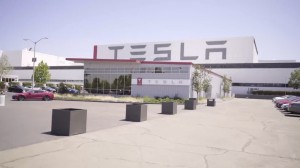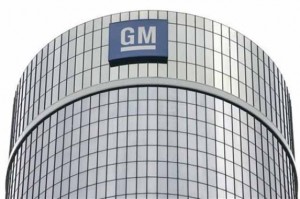As trading wrapped up on Wall Street Tuesday, Silicon Valley automaker Tesla stopped just short of two major milestones: a market capitalization of $50 billion and bragging rights as America’s most value company by market capitalization.
Tesla shares have been on a tear this past week, despite continuing losses – and dire warnings by some key analysts. The bull run appears to be driven by strong first quarter sales and the revelation that Chinese financial powerhouse Tencent Holdings has taken a 5% stake in the company.
Tesla’s stock rise counters the weak reception traditional automakers, notably General Motors and Ford have gotten lately. Both have tumbled sharply since the beginning of the year, despite management efforts to make them more attractive to investors.
On Monday, GM both makers were down yet again, in part due to growing concerns about a slowdown in the U.S. new car market. Tesla shares, on the other hand, were up 7% after the maker reported both record production and deliveries for the first quarter. That put Tesla’s market cap at $48.2 billion as traders ended the day, compared to $45.1 billion for Ford.
(Tesla’s market value surpasses Ford’s. Click Here for the story.)
On Tuesday, the Tesla rally continued, its shares pushing north by another 1.74%, to $303.70. That translated into a closing market valuation of $49.47 billion.
Some news outlets incorrectly reported that Tesla had pushed past GM, the nation’s largest domestic automaker, both by sales and capitalization. They were a little too eager. GM closed Monday worth $51.3 billion and managed to find a little much-needed energy on Wall Street Tuesday, its shares rising 0.29% for the day, to close at $34.27. That means a valuation of $51.34 billion.
What will happen in the coming days is anybody’s guess.
There are still plenty of skeptics, including CFRA’s Efraim Levy who, on Monday, reiterated the “Sell” advice he has been giving Tesla shareholders for several months. Despite some potentially lucrative developments on the horizon, Levy cautioned, “TSLA’s rich valuation concerns us.”
(Click Here for details about Tesla’s Q1 production record.)
A look at a historical stock chart shows Levy isn’t alone, the stock hitting a low of barely half its current value in early 2016. Since then, it has delivered an ongoing stream of peaks and valleys that has made it most appealing to investors with strong constitutions and a longer-term outlook.
The key issue for those investors is what they expect to happen on three fronts:
- Sales of Tesla’s electric vehicles, especially with the upcoming launch of the Model 3 its first mainstream offering. CEO Elon Musk has promised production will begin in July, though Tesla has so far missed all earlier production launch deadlines. Tesla’a founder also is forecasting sales will more than quintuple, to 500,000, in 2018;
- SolarCity, the solar panel company Tesla took over in a controversial acquisition. It is just launching its own critical new product, solar panels that can replace conventional roof shingles; and
- Tesla’s battery and power backup operations. The maker recently began low-volume production at its partially completed Gigafactory in Reno, Nevada.
As trading closed on Monday, Musk gave a razz to those who have remained bullish on Tesla, targeting short-sellers by tweeting, “Stormy weather in Shortville.”
Tesla will soon report its latest earnings and those could have a big impact on the market. The maker went deep into the red in its last report, Tesla posting only two quarterly profits since going public – and only then by using non-standard accounting methods.
(Will the Tesla Model 3 be the safest car ever? That’s what one analyst is predicting. Click Here to find out why.)
One factor that could keep investors upbeat was the move by Tencent Holdings to pick up 8.2 million shares, or 5%, a $1.78 billion move revealed in a mandated federal filing. Exactly what Tencent’s own game plan is, the Chinese company isn’t saying, but investors will clearly be watching for signs in the days, weeks and months to come.



Musk’s IQ is probably higher than the total of the “Big Three” board of directors.
Subsidies help ?